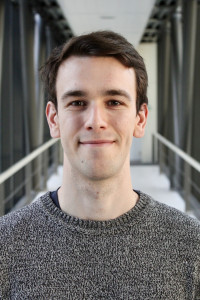MSc. Pablo de Torres Gutiérrez
Research
The master clock of the brain synchronizes to external light cycles to generate biological rhythms. Most of the circadian research to this date has been conducted on nocturnal animal models. We have evidence that the diurnal clock processes light differently compared to nocturnal species, which is no surprise since the timing and exposure to light varies greatly between the two. Nevertheless, the mechanisms behind these differences remain poorly understood. My PhD aims to bridge this gap by combining electrophysiological, behavioral and functional imaging techniques. In particular I will investigate how the master clock of the brain responds to light in single neurons and at the network level. To achieve this, I am working with several animal models: nocturnal (mouse and rat) and the diurnal rodent Rhabdomys pumilio.
Curriculum Vitae
I obtained my bachelor’s degree in biochemistry at the Complutense University of Madrid in 2019. During my bachelor's I did a research internship where I studied synaptic changes in a fragile X syndrome mouse model. In July 2021 I completed my research master degree in Fundamental Neuroscience at Maastricht University (cum laude). During this period I did an internship at the Circadian clocks lab at the LUMC in Leiden, in which I investigated the photic input into the suprachiasmatic nucleus of diurnal and nocturnal rodents. After working there as a student assistant, I started my PhD as of January 2023.




